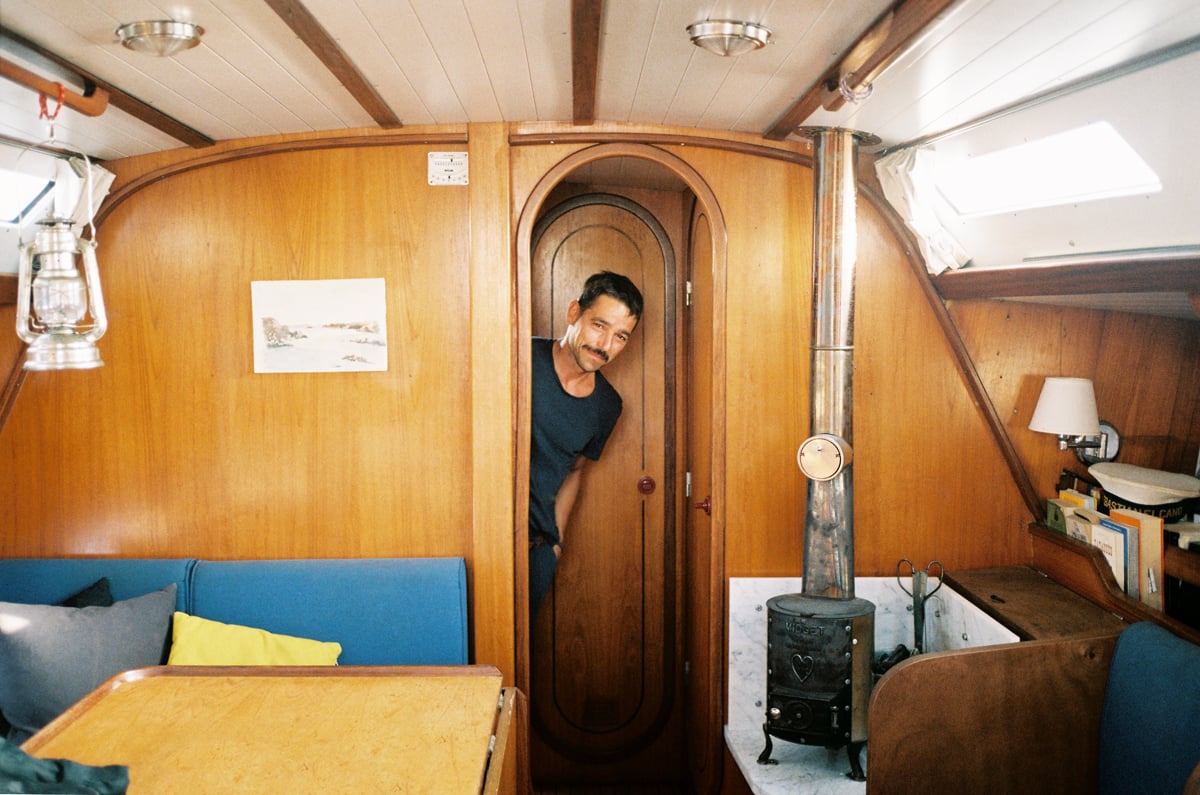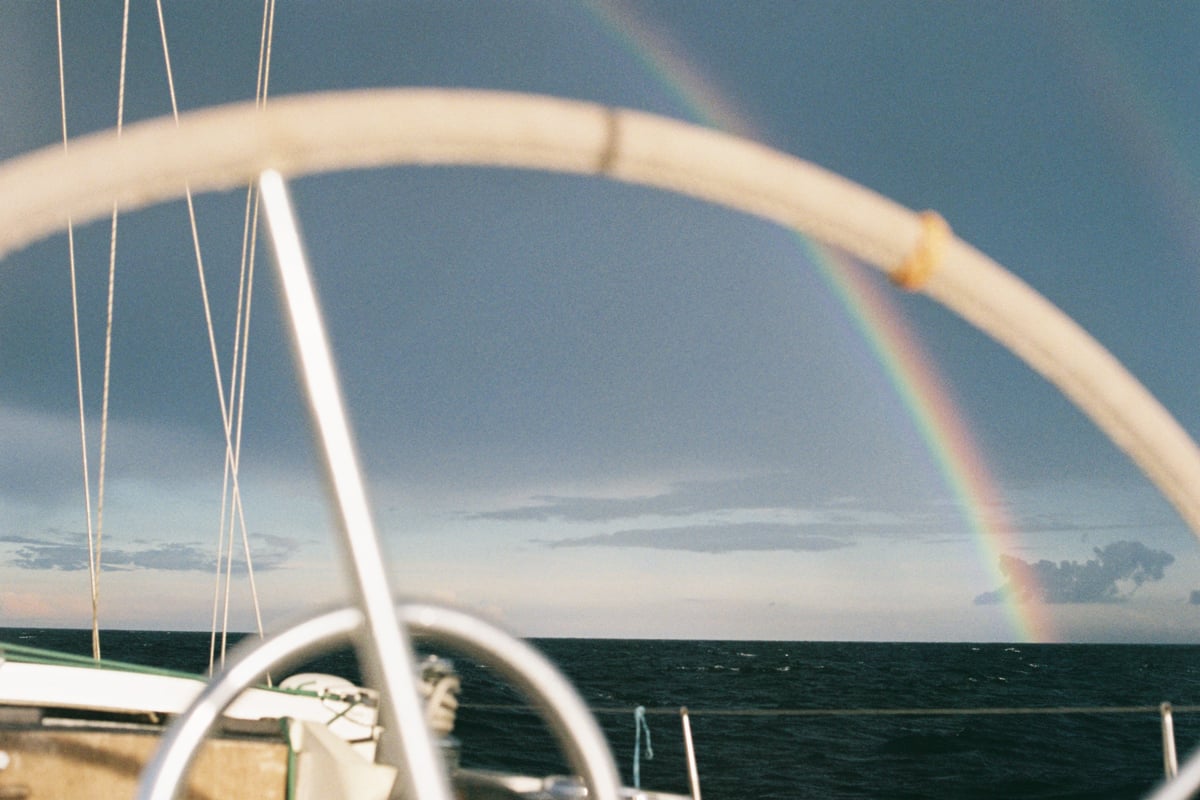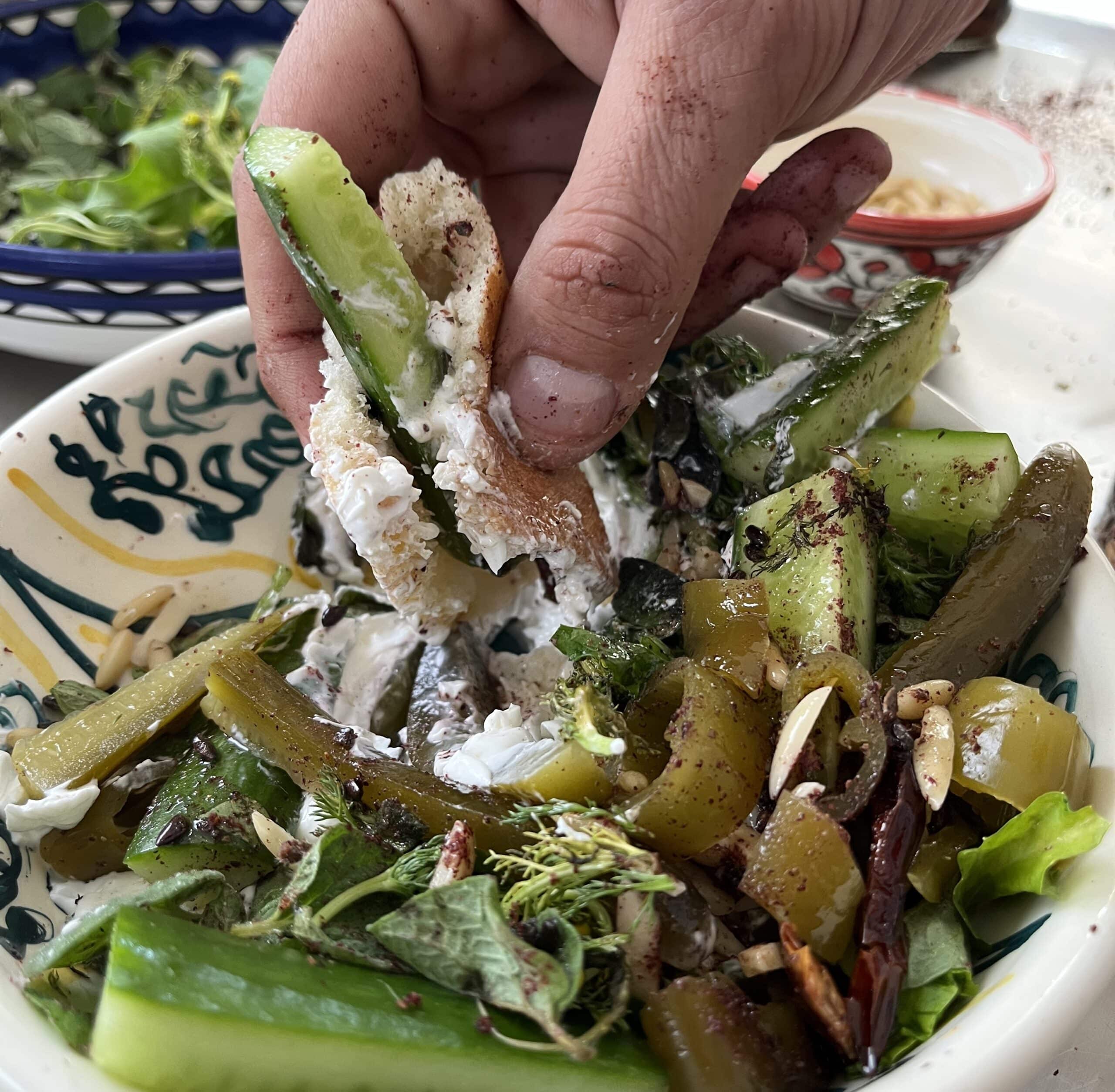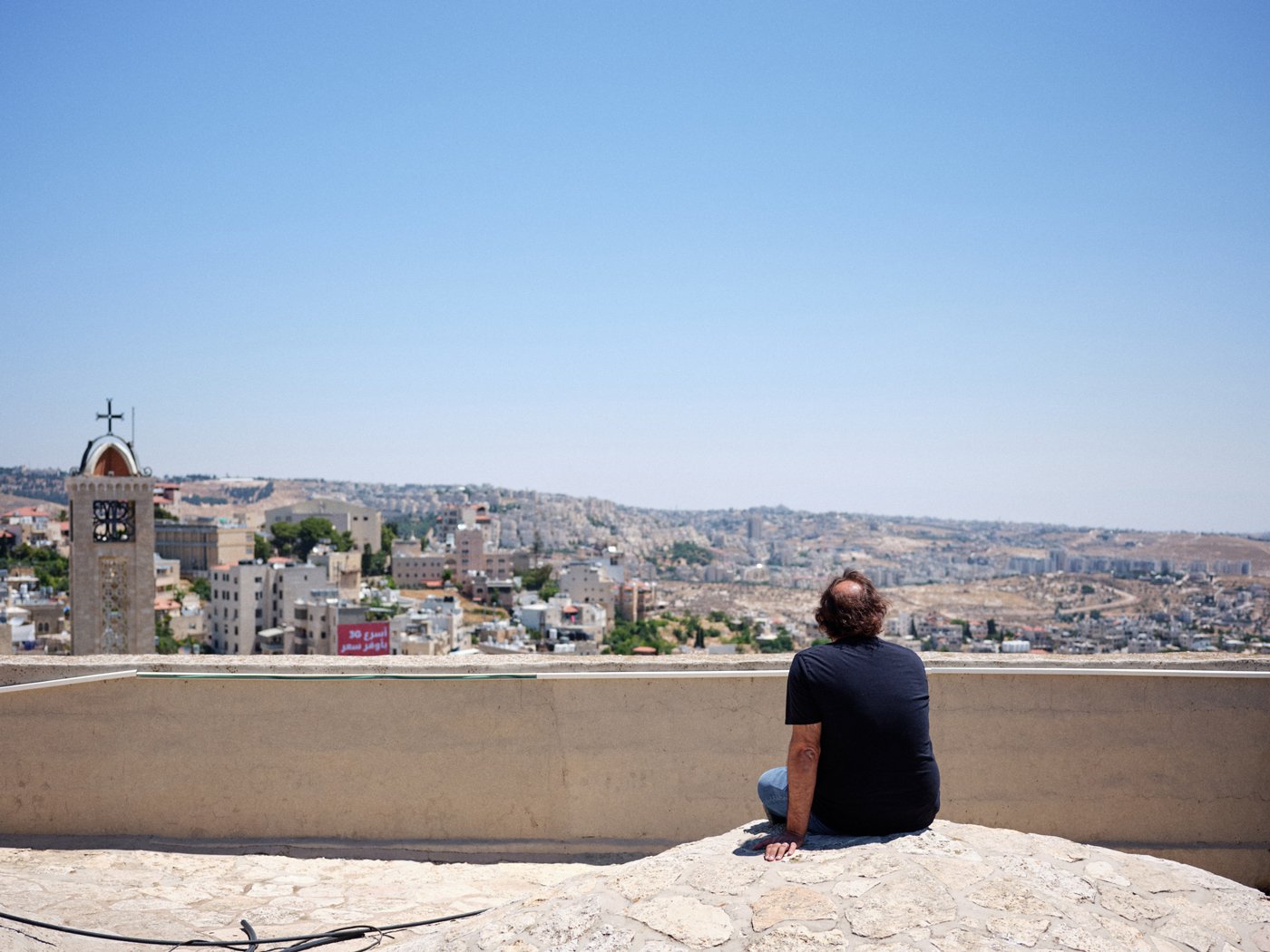Get out of bed. See what the wind and the boat are doing. Everything is going well. What time is it. Be active, coffee or tea. Feed yourself, avoid sugar and fats. Get dressed for the occasion. Antonio jumped into his bunk just before waking me up. I haven’t seen him, he must have had a good watch. Everything except the sea in silence. Put the life vest on and a knife in your pocket. Grab the bag. What’s inside? The novel I’m reading, a set to write letters, embroidery and watercolour kits, my camera. Everything’s ready for the next few hours.
There are two of us onboard, we shift every four hours. When I’m awake my mate is asleep, and vice versa. We are delivering a small sailboat to Barcelona from the other side of the world. We have been sailing for most of the past eight months. Although we’ve had some adventures, most of the days have been very similar. Apparently, days are always the same. We don’t have any way of knowing about our loved ones, and we can listen to just two or three international shortwave radio shows to see if something important has happened in the world. We are isolated.
Since we left the South Keeling Islands 10 days ago we haven’t seen a boat. There weren’t many human signs there either. We reached the remote coral reef atoll after 16 days’ sailing from the northwest tip of Australia. Using our intuition and some celestial navigation, we found the island. We thought we might miss it, as it’s just as tall as a bunch of palm trees growing from a beach in the middle of the Indian Ocean. We pointed or bow towards the island. The downside was that we were sailing on 40 knots of wind and it was raining monsoon-style, which means very poor visibility. Bearing in mind that entering an atoll is a delicate manoeuvre, we decided to be cautious and forget about risking ourselves with the lagoon, a body of water lapped by foaming waves and framed by dangerous reefs. We’d been about to give ourselves a well-deserved break to our confinement, but we had to accept that nature was stronger than our desire. Instead, we decided to pass as near as possible to the island; that would be our consolation prize. We ended up passing so close by that a lonely sailing boat saw us. We couldn’t believe it when we heard a guy talking on the radio, calling a boat in close proximity to the Cocos Keeling Islands. We answered like a lightning bolt. He offered to come out into the ocean with his small dinghy to meet us at the entrance of the atoll, then guide us through the invisible coral labyrinth to the anchorage. We assumed he knew the way very well and accepted. His name was Fabrizzio, an Italian guy who’d arrived there with his family in a sailboat a few weeks ago. A hero! A few minutes later we dropped our sails and, with a mix of nerves, concentration, excitement, we navigated into the lagoon until we were safe. We anchored, and the weather didn’t improve until the next day.
We stayed on the island for a week. Around us we had the most beautiful turquoise landscape a sailor could dream of. But we were still isolated from the world. We spent a week seeing no more than what Charles Darwin would have seen during his 12-day visit onboard the HMS Beagle with Captain FitzRoy in command. He discovered 20 species and 16 new families among the plants, all descendants of the seeds the sea had carried there. No other humans were around.
Being in the lagoon was very similar to being here now. No restaurants, no museums, no movies, no news, no phone, no friends. We need to know how to be with just ourselves, how to run through boredom and loneliness. Learn to find sense and pleasure in the simplest and smallest facts around us. Observe without thinking for as many hours as we can.
In the modern world we are not trained to enjoy a very simple life. When I started sailing long passages, I knew I was getting into something brutal for my personal growth, but I didn’t know what to do to make the time go faster. Although I was doing what I like the most, I didn’t know how to be alone. I used to get terribly bored. Then I learnt not to think about the trip as a whole long thing. I started breaking the projects into very small parts. This one time we had to cross the Indian Ocean from east to west and the Atlantic Ocean from south to north. That split the trip into two parts. Each trip had some small stopovers. I just had to be able to handle not doing a lot, not seeing anybody aside from my mate, not having a lot of news from the world, not walking, not doing sport, not talking to my friends, for periods of 5, 10, or 25 days at the most. Each period was divided by days. Each day by morning, afternoon, and night. What do I need to do this morning? That is the longest I used to think when I was sailing for months.
In the early days I also had to make a plan to handle the fact that I couldn’t move from where we were, such a tiny space, but little by little everything changed. It’s not that time passed faster, it’s that I started enjoying doing and feeling differently. Observing, thinking. It’s a pity that at the time we knew very little about yoga and meditation, because what I did, what helped me to enjoy every mile we sailed instead of thinking about the next ones, was looking at everything I had very nearby, starting with me. It was learning that the meaning of life is the very simple actions we do every day. It helped me to realise that we are very small, that the important things, being quiet or happy, are inside, not outside. I needed to go to sea for very long trips to find this out. It helped me to enjoy both: isolation, and also being on land and merging with everybody else.
Right now, in the strongest weeks of coronavirus, I’m typing this text confined in my boat, Narinan, in the centre of Barcelona. For me it’s not a difficult situation. I could be like this for a very long period, because I’ve learnt to be just with myself. Besides being very sad to hear of people dying, losing their jobs, and besides knowing that it will be a very hard time, financially speaking, after these two or three months, being confined is not new for me.
From a sailor’s point of view, I recommend not thinking about the future, splitting time into small parts, getting clean and well dressed, having a timetable. Learn, study, read. Take care to structure your standard week, have discipline, be your own boss, but keep your weekends free and unprogrammed. Maybe you would never go to a retreat, but life has given you one. People on retreats learn that the nicest walks are through one’s inner fields. Do yoga and meditate. I’m not very good at it, but even being a beginner helps to calm everything down and find sense through my inner life.
Remember that ups and downs are part of being a happy sailor in the ocean. They come and go, like waves. We need them for the balance. ‘Without patience, a sailor I would never be’. All these tips helped me a lot at sea. And I think we are all sailors during these days of confinement.





 close
close